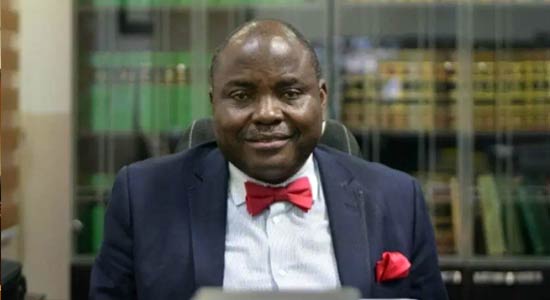Okutepa, SAN, Counter Force PRO Says Cursing Public Institutions Not An Offense Under Nigerian Law
 Senior Advocate of Nigeria Jibrin Samuel Okutepa strongly asserted the public’s right to criticize government institutions, even if such criticism involves curses or strong language expressing frustration.
Senior Advocate of Nigeria Jibrin Samuel Okutepa strongly asserted the public’s right to criticize government institutions, even if such criticism involves curses or strong language expressing frustration.
Okutepa’s comments came in response to a statement by the Police Public Relations Officer Olumuyiwa Adejobi, suggesting that issuing curses against government institutions may constitute an offense under Nigeria’s Cybercrimes Act.
“With profound respect, it is not an offence to issue a curse against any institution of governance in Nigeria, although I do not subscribe to anyone cursing any institution of governance,” Okutepa wrote. “Institutions of governance can be criticised. I do not subscribe to any institution meant to serve the public and public good to think that it can be immune from public criticisms of its actions or inactions.”
The senior lawyer noted that Section 35(12) of Nigeria’s 1999 constitution stipulates that an act can only be considered an offense if a written law prescribes a penalty for it. He argued that cursing does not meet the definition of cyberstalking or cyberbullying under the Cybercrimes Act.
“Cursing is the use of profanity or swear words often to express anger, frustration, or annoyance,” Okutepa explained. “The impact can be hurtful or offensive but typically does not involve a pattern of behaviour intended to harm or intimidate.”
In contrast, he said, cyberstalking and bullying involve repeated, deliberate acts intended to harass, threaten or cause emotional distress.
Okutepa maintained that government institutions funded by public money must be accountable to the public and open to criticism.
“Public institutions are not immuned from being cursed,” he wrote, “and to even think of criminalising criticisms of actions of public institutions is to create tyrannical emperors in those institutions. It is not reasonably justifiable in democratic society.”
The senior advocate called on those leading public institutions to “develop shockabsolvers” and act in a manner that earns public trust, rather than seeking to restrict dissent.
“To think that criticisms, however hard rooted in curses, are offences in law should not be accepted by any reasonable member of the society,” Okutepa concluded.
The legal luminary’s strong defense of citizens’ right to freely criticize public bodies is likely to resonate with many Nigerians who believe government institutions must be subject to public scrutiny.













